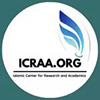
Ghulam Haider Aasi
“[Classical Muslim] scholars did not see world religions as epiphenomenon, nor did they divide knowledge into watertight disciplines, á la modern Western scholarship. In view of the Islamic concept of the unity of knowledge and Truth, they saw religion as the mother of all sciences, the fountainhead and quintessence of all branches of knowledge. The present division of knowledge into humanities, social sciences, and natural sciences is a Western innovation, primarily based upon the postulates of anthropocentricism, evolutionism and materialism. This explains why the Western classical studies of religion, from the second half of the nineteenth century onward, were obsessed with the search for origins and primordial forms of religion. They reduced religion to an element of culture, rather than looking at man as homo religiousus and treating the religious phenomenon as the very core of human culture and civilization.
In contrast, Muslim scholars conceived religion as the core and basis of all human culture and civilization, and saw all other branches of knowledge as directly related to, and dependent upon, the science of religion. That is why many Muslim works on history (whether biographical, local or universal), geography, belles lettres, law, theology or philosophy, also contain some information pertaining to Islam and other religious traditions.”
– Aasi, Ghulam Haider, Muslim Understanding of other Religions: A Study of Ibn Hazm’s Kitab al-Fasl fi al-Milal wa al-Ahwa wa al-Nihal, (Islamabad: IIIT and IRI, 1999) 33
